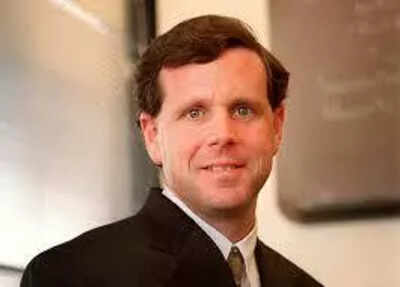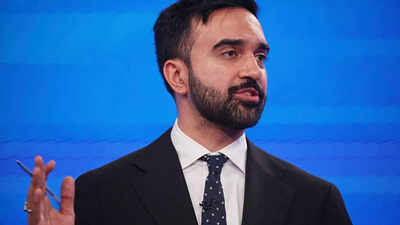David Cutler educational qualification: How Harvard and MIT paved this economist’s way to the front lines of US health reforms

In a world of think-tank resumes and siloed expertise, David Cutler has carved a career that defies academic convention. He’s not just one of the most respected health economists in the US—he’s a builder of policy, an architect of reform, and, as of 2025, the interim dean of Social Sciences at Harvard University.Cutler stepped into the role in June 2025, following the departure of longtime dean Lawrence Bobo. It’s not his first time leading the division—he held the same position from 2003 to 2008—but this time, the stakes are even higher. With AI transforming the workforce, inequality growing deeper, and public trust in institutions at a breaking point, the social sciences need a leader who understands both the data and the urgency. Enter David Cutler.But before he was dean, before the policy papers and the White House briefings, Cutler was just another Harvard student with big questions—and a growing belief that economics could be more than charts and models. It could be a tool for change.
An Ivy League start, but not a predictable path
Cutler’s academic journey began at Harvard College, where he graduated summa cum laude in economics. It was a start that promised prestige—but he didn’t chase Wall Street. Instead, he pursued the deeper question: How do you build an economic system that works for people, not just profit?He earned his Ph.D. in economics from MIT in 1991, solidifying his reputation as one of the top young minds in the field. But rather than disappearing into academic theory, he doubled down on public impact.
From classrooms to cabinet rooms
After earning his Ph.D., Cutler returned to Harvard — this time as a professor. Over the years, he took on roles that most academics only dream about. He became the Otto Eckstein Professor of Applied Economics, held joint appointments across Harvard’s Economics Department, the Kennedy School, and the School of Public Health, and served as Dean of the Social Sciences Division — not once, but twice, most recently stepping back into the role in 2025 after Lawrence Bobo’s departure.Yet for all his campus credentials, Cutler’s impact stretches far beyond Cambridge. He was a key advisor in the Clinton administration, shaping national economic strategy, and later served as Senior Health Care Advisor to Barack Obama, helping craft ideas that would shape the Affordable Care Act.Where most economists publish papers, Cutler drafted policy. Where many stayed in theory, he moved into action.
Rewriting the system
Cutler’s influence didn’t just come from policy memos — it came from publishing work that made complex problems readable, solvable, and deeply human. His 2004 book Your Money or Your Life was one of the first to frame U.S. health care not just as broken, but fixable — if only we focused on quality instead of cost-cutting. The book was later profiled in a New York Times Magazine feature, The Quality Cure, making Cutler one of the rare economists whose ideas actually reached the public.He followed that up with The Quality Cure in 2014 and, more recently, Survival of the City (co-authored with Edward Glaeser), a deep dive into how cities must adapt to pandemics and inequality in a time of climate change and isolation.But even his most technical work — like his 2003 study on the economics of obesity — has always centered people, not just numbers. He argued that America’s weight crisis wasn’t a moral failing but a market distortion, where frozen pizza and soda were made cheaper and easier than healthy alternatives.
Cutler’s classroom is everywhere
What sets Cutler apart isn’t just the brilliance of his models or the reach of his appointments. It’s his ability to teach — to make complicated economic systems understandable, and to make students believe they can change them.Honored as a Harvard College Professor for his excellence in undergraduate teaching, Cutler’s legacy includes not just laws and legislation but generations of students who now lead in health, economics, and public policy.He’s also a Research Associate at the National Bureau of Economic Research, a member of the National Academy of Medicine, and a commissioner on the Massachusetts Health Policy Commission, where he continues to push for smarter, more equitable care.
Educated to reform, not just report
David Cutler’s education wasn’t just about credentials — it was a launchpad for reimagining what economics could be. He didn’t stop at diagnosing the dysfunction in U.S. health care — he helped design the blueprints for reform. And he did it not by shouting from the sidelines but by writing the playbook from within.At a time when the public is more skeptical than ever of elite institutions, Cutler is a reminder that the right kind of expertise — grounded, public-minded, relentlessly curious — still matters.He didn’t just attend Harvard. He built Harvard’s next chapter. And now, as he once again leads the university’s social sciences division, he’s not just looking backward at his own education — he’s shaping the future of what education, and economics, can do for society.





